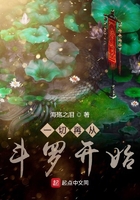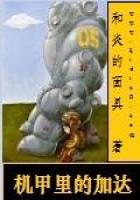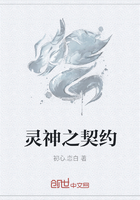Therefore we behold him in the dock, a stranger to all historical, political or social considerations which can be brought to bear upon his case. He remains lost in astonishment. Penetrated with respect, overwhelmed with awe, he is ready to trust the judge upon the question of his transgression. In his conscience he does not think himself culpable; but M. Anatole France's philosophical mind discovers for us that he feels all the insignificance of such a thing as the conscience of a mere street-hawker in the face of the symbols of the law and before the ministers of social repression.
Crainquebille is innocent; but already the young advocate, his defender, has half persuaded him of his guilt.
On this phrase practically ends the introductory chapter of the story which, as the author's dedication states, has inspired an admirable draughtsman and a skilful dramatist, each in his art, to a vision of tragic grandeur. And this opening chapter without a name--consisting of two and a half pages, some four hundred words at most--is a masterpiece of insight and simplicity, resumed in M.
Anatole France's distinction of thought and in his princely command of words.
It is followed by six more short chapters, concise and full, delicate and complete like the petals of a flower, presenting to us the Adventure of Crainquebille--Crainquebille before the justice--An Apology for the President of the Tribunal--Of the Submission of Crainquebille to the Laws of the Republic--Of his Attitude before the Public Opinion, and so on to the chapter of the Last Consequences. We see, created for us in his outward form and innermost perplexity, the old man degraded from his high estate of a law-abiding street-hawker and driven to insult, really this time, the majesty of the social order in the person of another police-constable. It is not an act of revolt, and still less of revenge.
Crainquebille is too old, too resigned, too weary, too guileless to raise the black standard of insurrection. He is cold and homeless and starving. He remembers the warmth and the food of the prison.
He perceives the means to get back there. Since he has been locked up, he argues with himself, for uttering words which, as a matter of fact he did not say, he will go forth now, and to the first policeman he meets will say those very words in order to be imprisoned again. Thus reasons Crainquebille with simplicity and confidence. He accepts facts. Nothing surprises him. But all the phenomena of social organisation and of his own life remain for him mysterious to the end. The description of the policeman in his short cape and hood, who stands quite still, under the light of a street lamp at the edge of the pavement shining with the wet of a rainy autumn evening along the whole extent of a long and deserted thoroughfare, is a perfect piece of imaginative precision. From under the edge of the hood his eyes look upon Crainquebille, who has just uttered in an uncertain voice the sacramental, insulting phrase of the popular slang--MORT AUX VACHES! They look upon him shining in the deep shadow of the hood with an expression of sadness, vigilance, and contempt.
He does not move. Crainquebille, in a feeble and hesitating voice, repeats once more the insulting words. But this policeman is full of philosophic superiority, disdain, and indulgence. He refuses to take in charge the old and miserable vagabond who stands before him shivering and ragged in the drizzle. And the ruined Crainquebille, victim of a ridiculous miscarriage of justice, appalled at this magnanimity, passes on hopelessly down the street full of shadows where the lamps gleam each in a ruddy halo of falling mist.
M. Anatole France can speak for the people. This prince of the Senate is invested with the tribunitian power. M. Anatole France is something of a Socialist; and in that respect he seems to depart from his sceptical philosophy. But as an illustrious statesman, now no more, a great prince too, with an ironic mind and a literary gift, has sarcastically remarked in one of his public speeches:
"We are all Socialists now." And in the sense in which it may be said that we all in Europe are Christians that is true enough. To many of us Socialism is merely an emotion. An emotion is much and is also less than nothing. It is the initial impulse. The real Socialism of to-day is a religion. It has its dogmas. The value of the dogma does not consist in its truthfulness, and M. Anatole France, who loves truth, does not love dogma. Only, unlike religion, the cohesive strength of Socialism lies not in its dogmas but in its ideal. It is perhaps a too materialistic ideal, and the mind of M. Anatole France may not find in it either comfort or consolation. It is not to be doubted that he suspects this himself; but there is something reposeful in the finality of popular conceptions. M. Anatole France, a good prince and a good Republican, will succeed no doubt in being a good Socialist. He will disregard the stupidity of the dogma and the unlovely form of the ideal. His art will find its own beauty in the imaginative presentation of wrongs, of errors, and miseries that call aloud for redress. M. Anatole France is humane. He is also human. He may be able to discard his philosophy; to forget that the evils are many and the remedies are few, that there is no universal panacea, that fatality is invincible, that there is an implacable menace of death in the triumph of the humanitarian idea. He may forget all that because love is stronger than truth.















